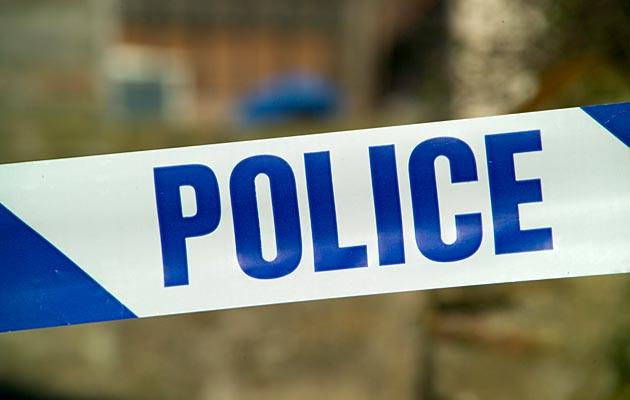Introducing “greenyard” policies as standard across the country should help save public money and prevent accidents.
World Horse Welfare has been working with authorities to share best practice on the policies, which set out how loose horses are dealt with. They involve people who are contracted to collect the horses and take them to a safe place until owners can be traced.
{"content":"PHA+VGhlIGNoYXJpdHnigJlzIGNoaWVmIGZpZWxkIG9mZmljZXIgQ2xhaXJlIEdvcmRvbiB0b2xkIDxlbT5IJmFtcDtIPC9lbT4gaWYgZXF1aW5lcyBhcmUgZm91bmQgb24gcm9hZHMsIHdpdGggbm8gd2VsZmFyZSBpc3N1ZXMsIHRoZXkgYXJlIHRoZSBwb2xpY2XigJlzIHJlc3BvbnNpYmlsaXR5LiBCdXQgYXMgbWFueSBvZmZpY2VycyBhcmUgbm90IGV4cGVyaWVuY2VkIHdpdGggaG9yc2VzLCBhbmQgZG8gbm90IGtub3cgd2hhdCB0byBkbyB3aXRoIHRoZW0sIHRoaXMgY2FuIGNhdXNlIHByb2JsZW1zLCBhbmQgYSBncmVhdCBkZWFsIG9mIHBvbGljZSB0aW1lIGFuZCBlZmZvcnQgaXMgdXNlZC48L3A+CjxwPklmIGEgZ3JlZW55YXJkIHBvbGljeSBpcyBpbiBwbGFjZSwgb2ZmaWNlcnMgcmVwb3J0IHRoZSBpbmNpZGVudCBhbmQgbGVhdmUgY29sbGVjdGluZyB0aGUgaG9yc2VzIHRvIHRob3NlIGNvbnRyYWN0ZWQgdG8gZG8gc28uPC9wPgo8cD7igJxJZiBjaGFyaXRpZXMgdG9vayBpbiBzdHJheXMsIHRoZXJlIHdvdWxkbuKAmXQgYmUgc3BhY2UgZm9yIHRoZSB3ZWxmYXJlIGNhc2VzLOKAnSBNcyBHb3Jkb24gc2FpZC4g4oCcQnV0IHRoYXTigJlzIGEgaGFyZCBjb25jZXB0IGZvciB0aGUgcHVibGljIHRvIHVuZGVyc3RhbmQsIHRoYXQgaG9yc2VzIGluIG5lZWQgYXJlbuKAmXQgaGVscGVkIGJ5IGNoYXJpdGllcy48L3A+CjxwPjxkaXYgY2xhc3M9ImFkLWNvbnRhaW5lciBhZC1jb250YWluZXItLW1vYmlsZSI+PGRpdiBpZD0icG9zdC1pbmxpbmUtMiIgY2xhc3M9ImlwYy1hZHZlcnQiPjwvZGl2PjwvZGl2PjxzZWN0aW9uIGlkPSJlbWJlZF9jb2RlLTMxIiBjbGFzcz0iaGlkZGVuLW1kIGhpZGRlbi1sZyBzLWNvbnRhaW5lciBzdGlja3ktYW5jaG9yIGhpZGUtd2lkZ2V0LXRpdGxlIHdpZGdldF9lbWJlZF9jb2RlIHByZW1pdW1faW5saW5lXzIiPjxzZWN0aW9uIGNsYXNzPSJzLWNvbnRhaW5lciBsaXN0aW5nLS1zaW5nbGUgbGlzdGluZy0tc2luZ2xlLXNoYXJldGhyb3VnaCBpbWFnZS1hc3BlY3QtbGFuZHNjYXBlIGRlZmF1bHQgc2hhcmV0aHJvdWdoLWFkIHNoYXJldGhyb3VnaC1hZC1oaWRkZW4iPg0KICA8ZGl2IGNsYXNzPSJzLWNvbnRhaW5lcl9faW5uZXIiPg0KICAgIDx1bD4NCiAgICAgIDxsaSBpZD0ibmF0aXZlLWNvbnRlbnQtbW9iaWxlIiBjbGFzcz0ibGlzdGluZy1pdGVtIj4NCiAgICAgIDwvbGk+DQogICAgPC91bD4NCiAgPC9kaXY+DQo8L3NlY3Rpb24+PC9zZWN0aW9uPjwvcD4KPHA+4oCcSWYgdGhlcmXigJlzIGFuIGVmZmVjdGl2ZSBncmVlbnlhcmQgcG9saWN5LCBpdCBkZXRhaWxzIHRoZSBwcm9jZXNzIGFuZCB0aGUgaG9yc2VzIGFyZSByZW1vdmVkLiBJdCByZWR1Y2VzIHRoZSByaXNrIG9mIGFjY2lkZW50cywga2VlcHMgaG9yc2VzIHNhZmUsIGFuZCB0aGUgb3duZXIga25vd3Mgd2hlcmUgdGhleSBhcmUu4oCdPC9wPgo8cD5NcyBHb3Jkb24gc2FpZCBob3JzZXMgd2lsbCBiZSBzY2FubmVkIGZvciBjaGlwcywgc28gdGhlIHBvbGljeSBpcyBhIOKAnHNhZmV0eSBuZXTigJ0gZm9yIHJlc3BvbnNpYmxlIG93bmVycy48L3A+CjxwPkJ1dCBmb3Ig4oCcc2VyaWFsIHN0cmF5ZXJz4oCdLCB3aGljaCB3YXN0ZSDigJxodWdlIGFtb3VudHPigJ0gb2YgcG9saWNlIHRpbWUsIHRoZSBvd25lcnMgd2lsbCBiZSBjaGFyZ2VkLCBpZiB0cmFjZWQsIGZvciB0aGUgaG9yc2Vz4oCZIGNvbGxlY3Rpb24sIGFuZCBjaGlwcGluZyBhbmQgcGFzc3BvcnRpbmcgaWYgbmVjZXNzYXJ5LCB3aGljaCBzaG91bGQgZGV0ZXIgZnV0dXJlIHN0cmF5aW5nLjwvcD4KPGRpdiBjbGFzcz0iYWQtY29udGFpbmVyIGFkLWNvbnRhaW5lci0tbW9iaWxlIj48ZGl2IGlkPSJwb3N0LWlubGluZS0zIiBjbGFzcz0iaXBjLWFkdmVydCI+PC9kaXY+PC9kaXY+CjxwPklmIG93bmVycyBjYW5ub3QgYmUgdHJhY2VkLCBhZnRlciAyMSBkYXlzIHRoZSBncmVlbnlhcmQgcHJvdmlkZXIgd2lsbCByZWhvbWUgdGhlIGhvcnNlcy48L3A+CjxwPk1zIEdvcmRvbiwgd2l0aCBwYXJ0bmVycyBmcm9tIHRoZSBOYXRpb25hbCBFcXVpbmUgV2VsZmFyZSBDb3VuY2lsLCBoYXMgYmVlbiBwcm9tb3RpbmcgdGhlIHNjaGVtZXMgdG8gZm9yY2VzIGFjcm9zcyB0aGUgY291bnRyeSBhbmQgc2hhcmluZyBiZXN0IHByYWN0aWNlPC9wPgo8ZGl2IGNsYXNzPSJhZC1jb250YWluZXIgYWQtY29udGFpbmVyLS1tb2JpbGUiPjxkaXYgaWQ9InBvc3QtaW5saW5lLTQiIGNsYXNzPSJpcGMtYWR2ZXJ0Ij48L2Rpdj48L2Rpdj4KPHA+4oCcUG9saWNlIHNob3VsZCBiZSBkb2luZyBiZXR0ZXIgdGhpbmdzIHRoYW4gY2hhc2luZyBob3JzZXMgYXJvdW5kIGxhbmVzLOKAnSBzaGUgc2FpZC4g4oCcSXQgY29zdHMgbm90aGluZyB0byBoYXZlIHRoZSBwb2xpY3ksIGFuZCBmb3IgdXMsIGl04oCZcyBhYm91dCBzZWN1cmluZyBob3JzZSB3ZWxmYXJlLuKAnTwvcD4KPHA+S2VycnkgQm93ZW4gc2V0IHVwIEVxdWluZSBFbWVyZ2VuY3kgU2VydmljZXMgMTAgeWVhcnMgYWdvIHRvIHByb3ZpZGUgZ3JlZW55YXJkIHNlcnZpY2VzLCBmb3IgZmx5LWdyYXppbmcgaG9yc2VzIGFzIHdlbGwgYXMgdGhvc2Ugc3RyYXlpbmcgb24gdGhlIHJvYWRzLjwvcD4KPGRpdiBjbGFzcz0iYWQtY29udGFpbmVyIGFkLWNvbnRhaW5lci0tbW9iaWxlIj48ZGl2IGlkPSJwb3N0LWlubGluZS01IiBjbGFzcz0iaXBjLWFkdmVydCI+PC9kaXY+PC9kaXY+CjxwPlNoZSB0b2xkIDxlbT5IJmFtcDtIPC9lbT4gdGhhdCBpbiB0aGUgc2l4IG1vbnRocyBiZWZvcmUgaGVyIHNlcnZpY2Ugd2FzIGNvbnRyYWN0ZWQgaW4gdGhlIER1ZGxleSBhcmVhLCAxLDEzNiBjYWxscyB3ZXJlIG1hZGUgYWJvdXQgbG9vc2UgaG9yc2VzIG9uIHRoZSByb2FkLiBJbiB0aGUgbmV4dCBzaXggbW9udGhzLCBpdCB3YXMgMTMzLjwvcD4KPHA+4oCcWW91IGNhbiBpbWFnaW5lIGFsbCB0aGUgcG9saWNlIHRpbWUgdGhhdCB3YXMgc3BlbnQgb24gdHJ5aW5nIHRvIGRlYWwgd2l0aCBhbGwgdGhlc2UgaG9yc2VzLOKAnSBzaGUgc2FpZC4g4oCcT2ZmaWNlcnMga25vdyB3aGF0IHRvIGRvIG5vdy48L3A+CjxwPuKAnFdlIGd1YXJhbnRlZSBhIG9uZS1ob3VyIHR1cm5hcm91bmQuIE93bmVycyBvZiBob3JzZXMgd2hvIGhhdmUgZ2VudWluZWx5IHN0cmF5ZWQgYXJlIGdyYXRlZnVsIHRvIGtub3cgdGhleeKAmXJlIGluIGEgc2FmZSBwbGFjZSwgYW5kIGl0IHByZXZlbnRzIGFjY2lkZW50cyBzbyBwcm90ZWN0cyBob3JzZXMgYW5kIHBlb3BsZS7igJ08L3A+CjxkaXYgY2xhc3M9ImluamVjdGlvbiI+PC9kaXY+CjxwPkluc3BlY3RvciBEYXZlIFNtaXRoIG9mIEtlbnQgUG9saWNlIGlzIHRoZSBuYXRpb25hbCBsZWFkIGZvciBlcXVpbmUgY3JpbWUuIEhlIHRvbGQgPGVtPkgmYW1wO0g8L2VtPiBiZWZvcmUgS2VudCBoYWQgYSBncmVlbnlhcmQgc2NoZW1lLCDigJx3ZSBkaWRu4oCZdCBrbm93IHdoYXQgaG9yc2VzIHdlIGhhZCwgb3IgZm9yIGhvdyBsb25n4oCdLjwvcD4KPHA+4oCcVGhlcmUgd2FzIG5vIHNlY3VyaXR5IGZvciB0aGUgdGF4cGF5ZXJzIHNvIEkgc2FpZCwg4oCYTGV04oCZcyBtYW5hZ2UgaXQs4oCZ4oCdIGhlIHNhaWQuIOKAnEluIDIwMTYsIGJlZm9yZSB3ZSBoYWQgdGhlIHBvbGljeSwgaXQgY29zdCDCozI2MCwwMDAgdG8gZGVhbCB3aXRoIHRoZXNlIGhvcnNlcy4gSW4gMjAxOCBpdCB3YXMgwqMxMDAsMDAwIGFuZCB0aGlzIHllYXIgdG8gTm92ZW1iZXIsIGl0IHdhcyDCozIwLDAwMC7igJ08L3A+CjxwPgo="}
You might also be interested in…
More than 1,000 officers are to benefit from the training, on how to deal with such situations
A man is due to appear in court later this month after his horses caused a fatal accident on the
The point-to-point team stopped to help when they saw two mares and foals running loose on the motorway
A horse and pony warden is to be introduced in Cardiff to deal with stray animals roaming the city’s streets
Police have been forced to close parts of the M4 in Wales three times in as many weeks due to
A Cheshire couple are lucky to be alive after their car flipped over on colliding with a loose horse
Stay in touch with all the news in the run-up to and throughout the major shows and events during 2025 and beyond with a Horse & Hound subscription. Subscribe today for all you need to know ahead of these major events, plus online reports on the action as it happens from our expert team of reporters and in-depth analysis in our special commemorative magazines. Have a subscription already? Set up your unlimited website access now
H&H news editor
Eleanor is an experienced journalist who spent over eight years working for local and national newspapers before joining H&H as news editor in March 2016. Passionate about equine welfare and exposing the truth, Eleanor has reported on all aspects of the industry, from Brexit to anti-bullying campaigns, and from dressage rules to mules. Her sport of choice is showjumping, in which she competes her own horses, and she also enjoys reporting at local jumping shows through to international championships.







